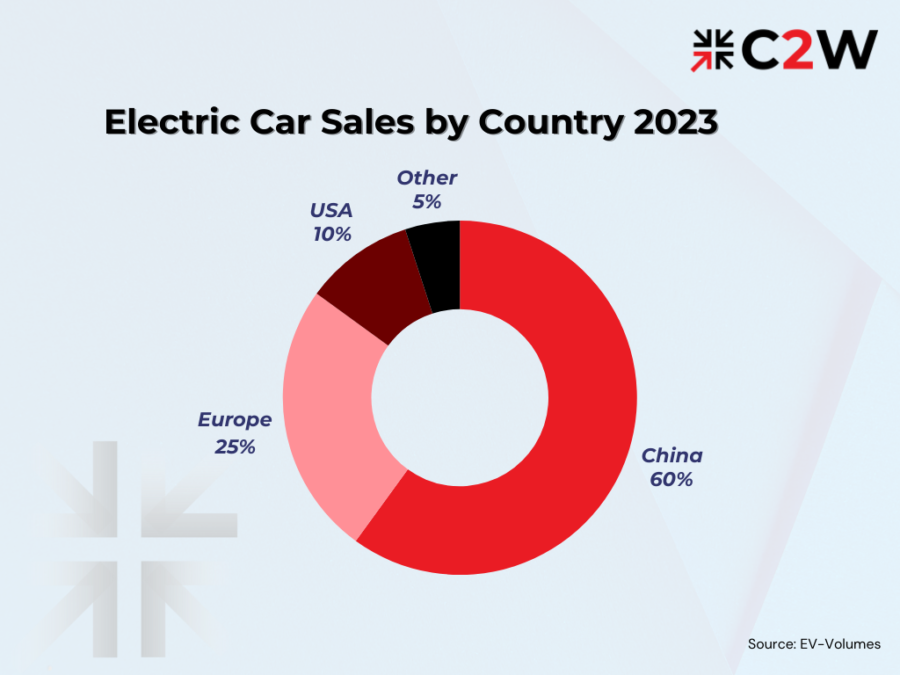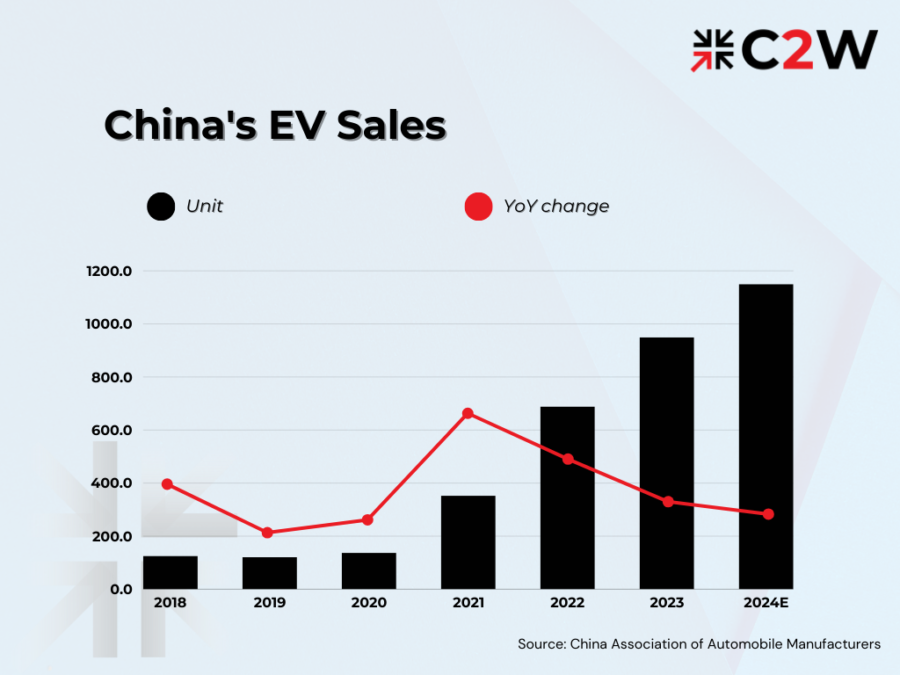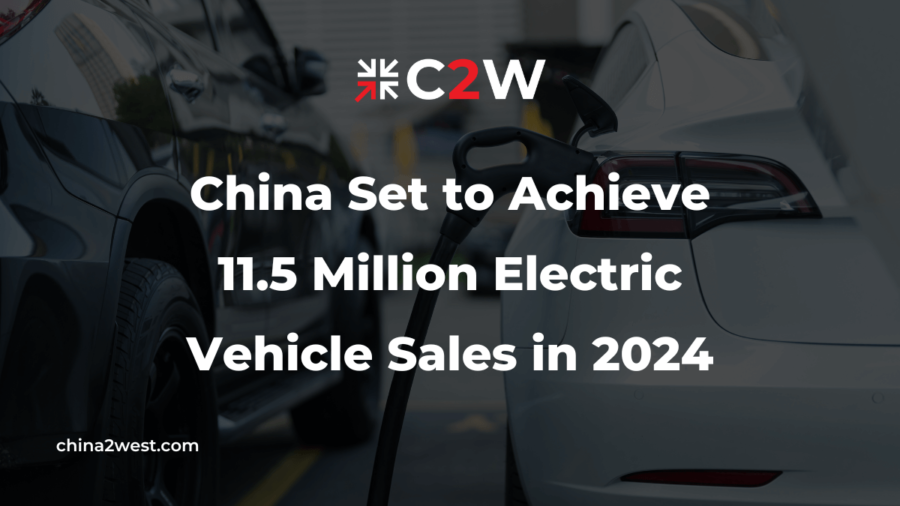The electric vehicle (EV) market is experiencing an unprecedented boom, and China is at the forefront of this revolution. With ambitious goals and substantial investments in technology, infrastructure, and innovation, China is projected to achieve a staggering 11.5 million electric vehicle sales in 2024. Let’s explore the EV market in China and discover the factors driving this surge.
The Global EV Landscape
Globally, the automotive industry is undergoing a dramatic shift towards electrification. Governments worldwide are implementing stricter emissions regulations and offering incentives to promote EV adoption. As a result, global EV sales are expected to experience unprecedented growth.
China, as the largest automotive market and a key player in the global supply chain, significantly influences worldwide EV trends. The country’s aggressive push towards electric mobility is driving technological advancements and shaping market dynamics. With major automotive manufacturers investing heavily in EV technology, the global market is witnessing a surge in electric models, from luxury cars to more affordable options.
While sales of electric cars are increasing globally, they remain significantly concentrated in just a few major markets. In 2023, just under 60% of new electric car registrations were in China, just under 25% in Europe, and 10% in the United States.

The Surge of China’s EV Sales
Over the past decades, China’s electric vehicle (EV) market has experienced phenomenal growth, positioning itself as a global leader in EV adoption. Starting in 2009, the Chinese government set a development goal to produce 500,000 new energy vehicles, making up about 5% of total passenger car sales.
With significant government support, the market expanded rapidly. The introduction of new and affordable EV models by domestic manufacturers such as BYD, NIO, and Xpeng Motors attracted a broader consumer base. Moreover, advancements in battery technology improved the range and efficiency of EVs, making them more appealing to a wider audience.
In 2023, China’s new energy vehicle (NEV) market experienced rapid growth, achieving sales of 9.495 million units and capturing a 31.6% market share, reflecting a year-on-year increase of 37.9%. The China Association of Automobile Manufacturers forecasts that NEV sales will reach 11.5 million units in 2024, marking a growth of over 3%. This steady and positive development trend signifies a pivotal year for China’s NEV industry to bolster its global status.

Government Policies and Incentives
China has rapidly emerged as a global leader in the electric vehicle (EV) industry, fueled by progressive government policies and incentives.
1. Strategic Government Policies
The Chinese government has implemented a comprehensive set of policies to support the EV industry. Central to this effort is the New Energy Vehicle (NEV) mandate, which sets ambitious targets for EV production and sales. Under this policy, automakers are required to ensure a certain percentage of their annual vehicle production consists of electric or hybrid models. This quota system compels traditional automakers to invest heavily in EV technology or face substantial fines.
Additionally, the government’s commitment to reducing carbon emissions is reflected in the stringent fuel economy standards and subsidies for EV buyers. These initiatives are designed to accelerate the transition from internal combustion engines to electric drivetrains, making EVs more attractive to consumers and manufacturers alike.
2. Financial Incentives and Subsidies
Over the past decade, the Chinese government has implemented a comprehensive set of policies aimed at supporting the electric vehicle (EV) industry. One of the key measures taken by the Chinese government is the vehicle purchase tax exemption policy for NEVs, which has been in place since September 2014. This policy allows buyers of new energy vehicles to be exempt from the 10% purchase tax. The government recently announced that this policy will be extended until the end of 2027.
Also, China has also provided direct financial subsidies for EV purchases since 2009. Over the years, the subsidy program has undergone several adjustments to encourage technological advancements and higher performance standards within the industry. By the end of 2022, the subsidy policy was officially concluded, marking a significant transition for the EV market in China.
3. Infrastructure Development
A well-developed charging infrastructure is essential for the widespread adoption of electric vehicles (EVs). Recognizing the importance of such infrastructure, the Chinese government has made significant investments to establish an extensive network of charging stations across the country.
By the end of 2023, China had successfully installed over 2 million charging stations, making it one of the largest and most accessible EV charging networks globally. China’s commitment to expanding its charging infrastructure does not stop there. The country has set an ambitious target to build an additional 3,000 charging stations and 5,000 charging points by the end of 2024.
Conclusion
As China leads the charge in the EV revolution, the implications for global markets, local economies, and environmental health are profound. The world will be watching closely as China drives towards a greener and more sustainable future. If you want to learn more about the supply chain in China or need to source products in the EV industry, contact us today. Our team of experts is equipped with the knowledge and connections to help you navigate the complexities of the Chinese market, ensuring that you can capitalize on the opportunities presented by this transformative sector. Whether you are a startup, an established business, or an investor, we are here to support your journey in manufacturing in China.


